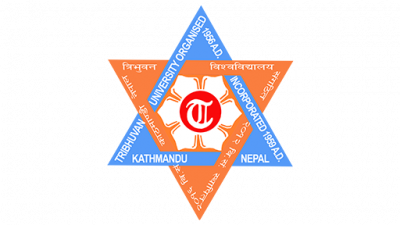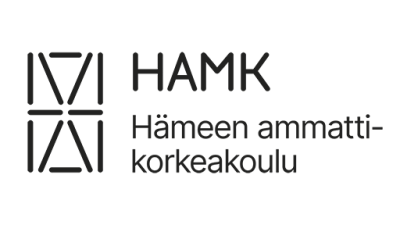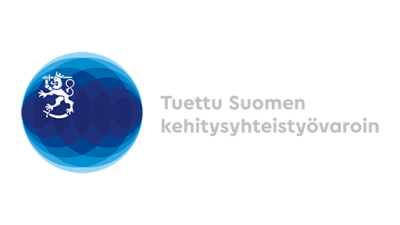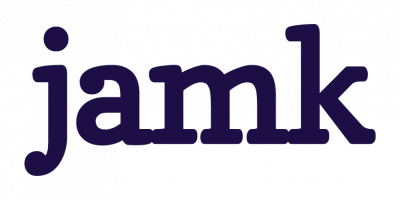Other projects in Nepal
Duration of the project: 1 March 2013–31 December 2015
Financier: Ministry of Foreign Affairs, Finland, HEI ICI programme
Project Manager: Tuovi Leppänen / Maija Hirvonen 1.8. - 31.12.2015
What was ToT Nepal?
In Nepal, the end of civil war, removal of the monarchy, and emerging but fragile political stability combined with a growing awareness of the value of education have all contributed to a significant increase in the expectations from public educational services. In spite of the significant improvements in access to education, many young people leave school without acquiring the basic skills that are necessary for raising their standards of living and the knowledge needed to effectively function in society.
In response to these challenges, the Ministry of Education of Nepal is improving the existing services by having introduced the School Sector Reform Program (SSRP) 2009–2015. The reform covers all the sectors of education and the aim is to improve the quality and relevance of education. One of the main focus areas of SSRP is teacher development. The ToT Nepal project is responding to this development challenge.
The purpose of our two-year ToT-Nepal project is to support teacher educators to plan and implement an upgrading programme of working teachers through an Open and Distance Learning (ODL) methodology. The ToT programme will support Tribhuvan University, Faculty of Education (Tu-FoE) to implement an upgrading programme for secondary education working teachers.
In the project we operate in TU-FoE's six campuses around Nepal: Butwal, Dadeldhura, Surkhet, Siraha, Sanothimi and Gorkha. We organise the training for 75 teacher educators and ICT experts from these central campuses along Nepal. The focus of the programme is on pedagogical development, which has an enquiry based approach in an ODL setting. Jamk is the coordinating partner in the development work we will implement with our partner HAMK University of Applied Sciences and in cooperation with Tu-FoE.
Partners
- Jamk University of Applied Sciences (Jamk), School of Professional Teacher Education, coordinating institution
- HAMK University of Applied Sciences
- Tribhuvan University, Faculty of Education (TU-FoE)
Development Objective
Effective implementation of the national School Sector Reform Plan 2009-2015 leading to quality education for all in Nepal
The purpose of the project
Increased competence of Tribhuvan University - Faculty of Education (TU-FoE) to implement the Teacher Qualification Upgrading Program for 13,000 working teachers in Nepal
The desired situation
ToT-Nepal has three result areas. They cover Open and Distance Learning methodology in education, administrative development, and material production. Due to long distances and challenging travel, there is a major need for flexible modes of high quality education.
Tribhuvan University, Faculty of Education is a pioneer in implementing Open and Distance Learning courses. The long-term aim is to disseminate the outcomes of the ToT-Nepal project results to other faculties in TU and other universities. In the future, Tribhuvan University will be able to implement an ODL modality of education in Nepal.
RESULT I: A group of 62 Teacher Trainers and 7 ICTE experts from Regional Campuses trained through ToT to implement the training of 13,000 working teachers through ODL methods.
RESULT II: TU-FoE Teacher Tutors and TU-FoE & regional campuses’ admin & management staff familiarised with procedures of an ODL training model.
RESULT III: Production of a Teacher’s Handbook for Teacher Trainers and of Self-Learning Materials (SLM) for 13,000 practising teachers supported.
The main activities
• Baseline study and evaluation
• 4 workshops at two campuses for 6 campus teacher trainers and ICT experts
• Tutoring visits to 6 campuses
• Online tutoring session for 6 campuses and Master Trainers in TU
• Study visits to Finland.
Outcomes of ToT Nepal
ToT – trainings and teachers capacity in an Open and Distance Learning methodology
The capacity in Tribhuvan University, Faculty of Education (TU-FoE) has increased in the Open and Distance Learning model of education. In the Training of Trainers (ToT-Nepal) programme, four planned workshops and online tutoring sessions have been implemented in order to guide 75 teacher trainers and ICT experts in the pilot phase of the upgrading programme. All six campuses have started courses in three different subjects; Curriculum and Evaluation, Nepali Language, and Health Education.
The challenges in the Nepali context are electricity supply, ICT environments, and access to computers. Despite that, ToT training participants have created email addresses, bought their own laptops, and started to use the virtual platform for ToT-training. After the ToT-training workshops all teacher trainers have gone through the basic knowledge and skills of ODL learning models and pedagogy.
One need for ToT – training was to empower teacher trainers to develop their own work and increase development in the campuses. Through the action research approach in adult learning, all the campuses have started to develop their practices to implement ODL methodology among adult students.
In the end of the project a collaborative evaluation session, Learning Café was organized. The participants reported increased motivation, pedagogical changes and strengthened cooperation inside campuses and in the whole university. Campus staffs were really enthusiastic to continue ODL courses and development actions.
Administrative development and management
In total, 18 participants of the TU-FoE administration and regional campuses participated in an exposure visits to Finland during the project. As a consequence of this visit, the campus chiefs and TU-FoE administrative staff conducted the SWOT analyses of their campuses in order to develop an ODL learning model. According to the feedback, commitment to the development process of the upgrading programme through ODL is gaining strength among campus administration. ICT experts reported that they obtained new materials and new insights for cooperation in order to develop ODL environments in TU.
Material Production
The ToT Handbook have been shared with all ToT –training participants through a virtual handbook and as handouts. Teacher trainers are also producing materials for their own campuses including all the subject areas of ToT-training. The Self-Learning Materials (SLM) for practicing teachers have been produced.
5-month extension
Due to the massive earthquake in April 2015 in Nepal the ToT-Nepal project was decided to continue for 5 more months. Tribhuvan University suffered lots of material damage but fortunately all partners are well. During the extension period August-December 2015 Tribhuvan University will complete planned activities in Nepal. All partners have expressed their will to continue collaboration after the first project.
Important links
- Finnish Ministry of Foreign Affairs
- Embassy of Finland, Kathmandu
- Educational Research and Development at JAMK
Articles
- Training of Trainers -project in Nepal in UAS Journal
- HEI ICI ToT Nepal Project by Vishnu Singh Rai, TU-FoE
- Finland supports Training of Trainers for Teacher Qualification Upgrading Programme in Nepal, article by Embassy of Finland, Kathmandu
13 000




Jamk was one of the partners in HOPE project. HOPE was a North-South-South project funded by the Ministry of Foreign affairs in Finland. The goal of the programme is to enhance the human capacity to ensure that people in all participating countries can better contribute to the cultural, socio-economic, and political development of their communities.
In order to achieve this goal, the programme aimed to establish long-term links and cooperation between HEIs by supporting projects involving student and teacher exchanges, and to raise the quality of education by sharing skills and information. The programme was to address the need for HEIs to also work together in areas other than research and make international cooperation available to a wider audience.
North-South-South HOPE project started in 2007 when the preparatory funding was granted for the partnership of three countries and six partner organisations. The HOPE collaboration has been ongoing with the same partnership in two phases, HOPE 1 2008-2010 and HOPE 2 2011-2013.
International partners
- Lalitpur Nursing Campus LNC and St. Xavier’s college in Nepal
- Hue University of Medicine and Pharmacy and Hue University College of Sciences, Division of Social Work as a new partner starting 2013 in Vietnam
Partners in Finland
- Diak, University of Applied Sciences is a coordinating institution
- Centria University of Applied Sciences Department of Humanities and Education and The Department of Health Care and Social Services
- Jamk, University of Applied Sciences, Teacher Education College (TEC)
Project work in practise
In the HOPE project, Jamk's Teacher Education College has offered short-term teacher training in intensive courses in participatory and student-cantered and group-based methodology. It has organised the planning phase of intensive courses and evaluation sessions for intensives. According to the feedback of the intensive course teachers, it has been a very fruitful learning process for participants.
Jamk has received over 10 exchange teachers from Nepal and Vietnam as visitor lectures and Jamk has sent two teacher students to Nepal.
HOPE exchange teacher students have promoted a pedagogical methodology in nursing and social work teaching in cooperation with Lalitpur Nursing Campus and St. Xavier’s College. The teaching methodology has developed through Hope intensive courses as well as through a teacher and student exchange. The main achievements of the collaboration have been strengthened South-South cooperation, and new pedagogical methods in use at partner organisations. Students and teachers have reported the exchanges to be valuable.